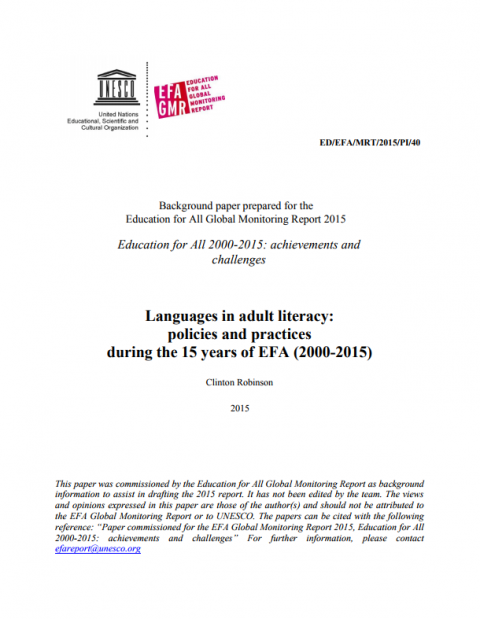
GCED Basic Search Form
Quick Search
Close
Usted está aquí
Resources
Languages in adult literacy: policies and practices during the 15 years of EFA (2000-2015)
Lugar de publicación | Año de publicación | compilación:
| 2015 | 28 p.
Región:
África
Asia y el Pacífico
América Latina y el Caribe

Linguistic diversity characterises many countries with large literacy needs. Meeting these needs will require a multilingual approach based on learning initial literacy in the learner’s mother tongue, with other languages used subsequently. This paper identifies five major challenges in implementing multilingual programmes, and traces the international policy developments over the 15 years of the EFA period. Four case studies – Mexico, Morocco, Papua New Guinea and Senegal – illustrate a range of policies, showing differing approaches and levels of commitment in providing literacy acquisition based on the mother tongue. The paper concludes with six policy orientations to guide action as part of the post- 2015 agenda.
URL del recurso:
Archivos:
Tipo de recurso:
Documentos de investigación / artículos de revistas
Tema:
Diversidad / alfabetización cultural / inclusiva
Palabras claves:
mother tongue
bilingual education
adult literacy
language
educational policy
case studies
